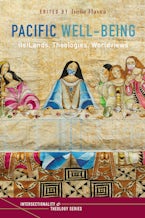- Home
- religion
- social science
- history
- Black Madonna
The figure of the Virgin Mary comes loaded with baggage and preconceptions. She is usually depicted as the perfect, obedient, and highly esteemed woman, much like the Victorian notion of the "angel in the house." For many black women, nothing could be more inaccessible. This book considers the relationship between African American women and Mary of Nazareth. After examining the history of black American motherhood during slavery and beyond, this book then gives an overview of the existing views of Mary in both the church and the academy. Lee then brings African American women and Mary together, creating a womanist Mariology by using womanist biblical and theological interpretation, as well as considering black motherhood during the age of "Black Lives Matter."
Courtney Hall Lee is a writer, attorney, and co-host of the Dovetail podcast, a show about the intersections of faith, culture, and social justice. Courtney is a graduate of Dartmouth College and Case Western Reserve University School of Law. She is currently pursuing a graduate certificate at Hartford Seminary. Courtney is a contributor at Sojourners online and WomenInTheology.org. She lives in Charlotte, North Carolina with her husband, daughter, and toy poodle.
“Lee has made a careful introduction for lay readers to the topics of the biblical Mary, Mary in theological imagination, and womanist interpretation. Black Madonna is a small but versatile volume that is invaluable as a primer. Those familiar with the Western tradition of the Madonna will find here challenge and exciting new considerations as Lee puts traditional interpretations in the context of black womanhood, quickening new life in sometimes too-familiar dogmas and devotions.”
— Preston Yancey, Author of Out of the House of Bread: Satisfying Your Hunger for God with the Spiritual Disciplines
“In this short but powerful book, Courtney Hall Lee invites the reader into reverence for Mary, black and beautiful, and by so doing, lifts up all black women as blessed.”
—Julia Feder, Assistant Professor of Systematic Theology, Creighton University











